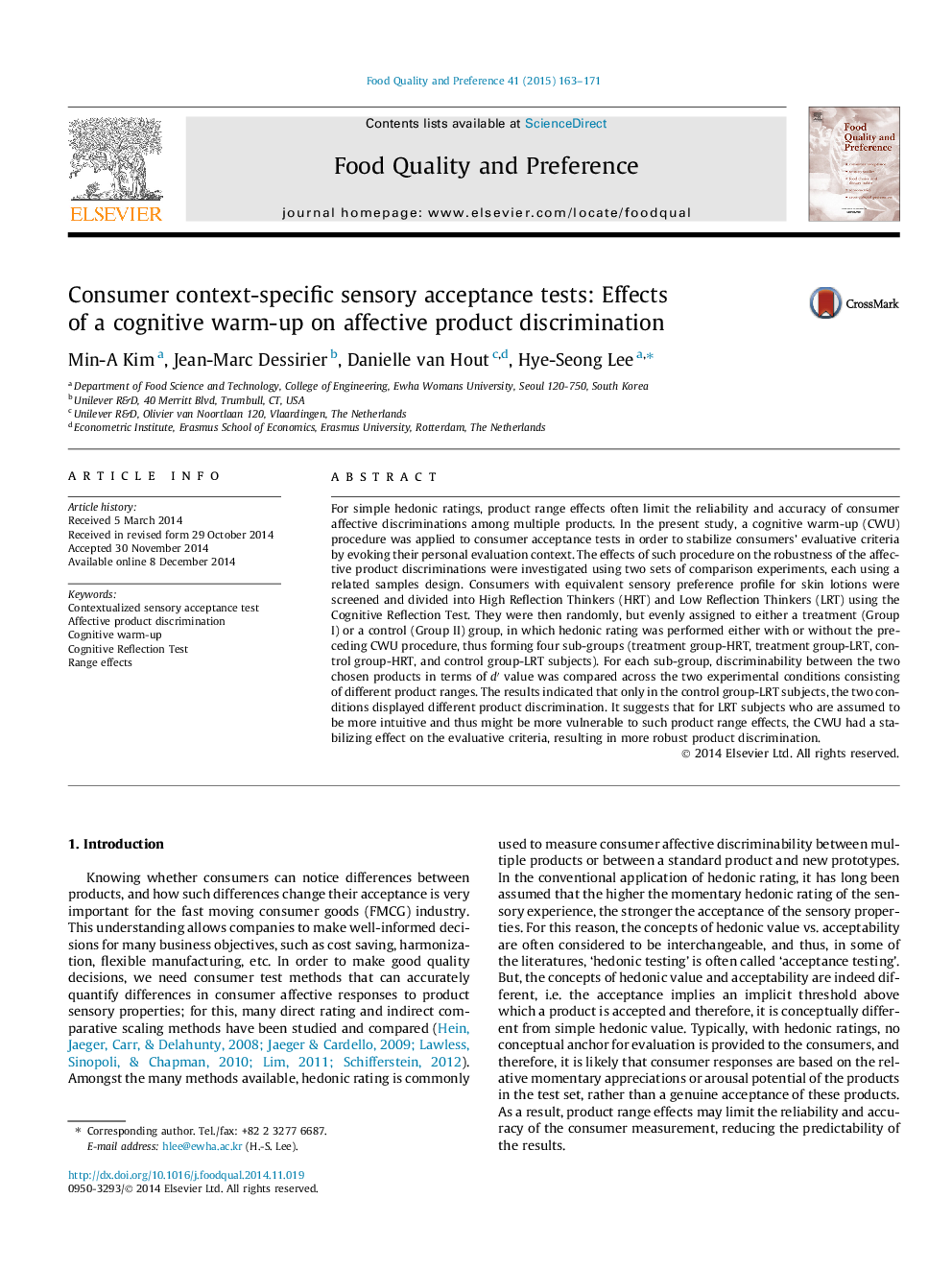| کد مقاله | کد نشریه | سال انتشار | مقاله انگلیسی | نسخه تمام متن |
|---|---|---|---|---|
| 4317023 | 1613156 | 2015 | 9 صفحه PDF | دانلود رایگان |
• A cognitive warm-up (CWU) was designed to apply consumer context to a hedonic test.
• Two sets of different product ranges were introduced to test effects of the CWU.
• Effects of consumers’ thinking styles on the robustness of the results were examined.
• Consumers that rated low on the Cognitive Reflection Test (CRT) were prone to range effects.
• The CWU reduced product range effects in the hedonic test, for low CRT subjects.
For simple hedonic ratings, product range effects often limit the reliability and accuracy of consumer affective discriminations among multiple products. In the present study, a cognitive warm-up (CWU) procedure was applied to consumer acceptance tests in order to stabilize consumers’ evaluative criteria by evoking their personal evaluation context. The effects of such procedure on the robustness of the affective product discriminations were investigated using two sets of comparison experiments, each using a related samples design. Consumers with equivalent sensory preference profile for skin lotions were screened and divided into High Reflection Thinkers (HRT) and Low Reflection Thinkers (LRT) using the Cognitive Reflection Test. They were then randomly, but evenly assigned to either a treatment (Group I) or a control (Group II) group, in which hedonic rating was performed either with or without the preceding CWU procedure, thus forming four sub-groups (treatment group-HRT, treatment group-LRT, control group-HRT, and control group-LRT subjects). For each sub-group, discriminability between the two chosen products in terms of d′ value was compared across the two experimental conditions consisting of different product ranges. The results indicated that only in the control group-LRT subjects, the two conditions displayed different product discrimination. It suggests that for LRT subjects who are assumed to be more intuitive and thus might be more vulnerable to such product range effects, the CWU had a stabilizing effect on the evaluative criteria, resulting in more robust product discrimination.
Journal: Food Quality and Preference - Volume 41, April 2015, Pages 163–171
